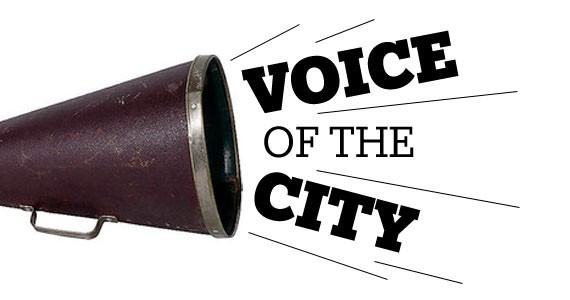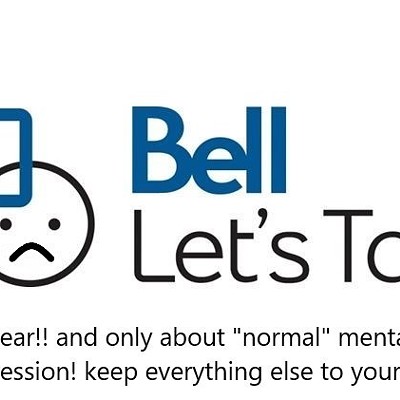In the last quarter of 2013, only two Canadian provinces didn't lose residents to other regions. Alberta was the big gainer, welcoming 5,663 new residents to Wild Rose Country's parallel-universe economy.
The runner-up was—wait for it—Nova Scotia. Two thousand four hundred and sixty-five people left and 2,736 arrived, for a net gain of 271 newcomers. For the first time in years, more Canadians moved to Nova Scotia than away. Two thousand fourteen's numbers aren't out yet, but I know one person in the positive tally: me.
In February, I relocated from Toronto, in spite of warnings from expat Haligonians, who must be the world's most discouraging civic ambassadors. ("You leave Halifax," cautioned one.) I knew the city, and came for the revitalizing neighbourhoods, gorgeous historical building stock and access to Atlantic Canada's extraordinary amenities.
I also came for the economy.
Last year, several colleagues and I were laid off from (poorly paid) jobs at a Toronto magazine. Afterwards, I landed a temporary, no-benefits gig at a non-profit. I was lucky—more than 250 people applied. With Toronto's January unemployment rate above 10 percent (eight percent in the GTA), and over 40 percent of the region's jobs part-time or temporary, lots of friends and colleagues were living the roommates-and-ramen lifestyle into their 30s, stringing together sketchy freelance, contract or retail jobs, despite master's degrees and finely calibrated resumes. Statistics Canada made Halifax, by contrast, look positively enticing: higher employment levels, more full-time jobs, median incomes above Toronto's, Montreal's or Vancouver's, and a relatively low cost of living.
I knew I was moving against a prevailing westward trend. But I was still shocked to find Halifax's civic dialogue fixated on a masochistic narrative of decline—and on some bizarrely unrealistic notions of how much greener the grass is elsewhere. Maybe it's because I'm from Canada's capital of irrational boosterism (Calgary), but I'm starting to get chicken-or-egg feelings about our out-migration problem: What came first? The out-migration, or the endless lamentation about it?
Here in The Coast, there've been five pieces on the topic in four months (including two with the words "Farewell to Nova Scotia" right in the headline). All reflect an uncontested assumption that Halifax is...limiting. Uncompetitive. Poor. Not for the ambitious. The proof? No proof. We know. The thing is, on virtually all economic fundamentals—employment rates, job-market competitiveness, after-tax disposable incomes—Halifax compares to or bests national averages. (Note: I realize rural Nova Scotia is a whole different situation, see below.) So if our civic conversation is premised on a grossly exaggerated assumption of underperformance, how can it be honest, or productive? Well...it can't.
Consider youth unemployment: The consensus is that we're in crisis. But at 15 percent last year, our rate is little worse than the national rate: 14.5 percent. (Halifax's full-time youth employment even rose seven percent last year.) And while we do considerably worse than prairie cities, we're far from Canada's worst—Toronto's youth-unemployment rate just hit 23 percent.
Consider immigration: They just get here and head to Ontario or Alberta, right? Actually, our retention has skyrocketed. Halifax boasts among the highest immigrant-employment rates and incomes in the country. What's more, 40 percent are working in their chosen fields, compared to 24 percent in Ontario, or 22 percent in BC.
I could go on. After last fall's provincial election, ousted premier Darrell Dexter hinted at a similar gulf between belief and reality. Quoted in the Globe and Mail, he described constituents in the north end flatly denying the federal shipbuilding contract will create jobs, even though, he said, "Those people could look out their doors and see the cranes."
I'm not disputing our difficulties. Our economy is decent, not exceptional. Our demographics are worrisome. And the discrepancy between urban Nova Scotia and rural Nova Scotia is dramatic.
So this is not a plea for complacency, but for perspective. If we want to do better—and have an honest conversation about our future—we need to reject groundless grass-is-greenerism, which risks becoming self-fulfilling, driving people away out of cultural expectation more than necessity. We need to swap civic stereotypes for facts. Especially, we need to believe this is a remarkable place, with remarkable potential. Two hundred and seventy-one people just voted with their feet to that effect, after all.
Matthew Halliday has lived in Ottawa, Montreal, Calgary, Vancouver, Calgary again, Edmonton, Toronto and now Halifax. He’d like to keep that list from growing any longer.



















